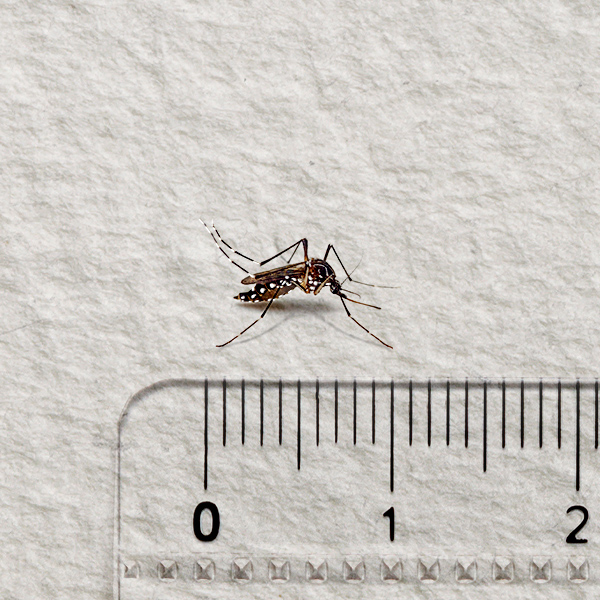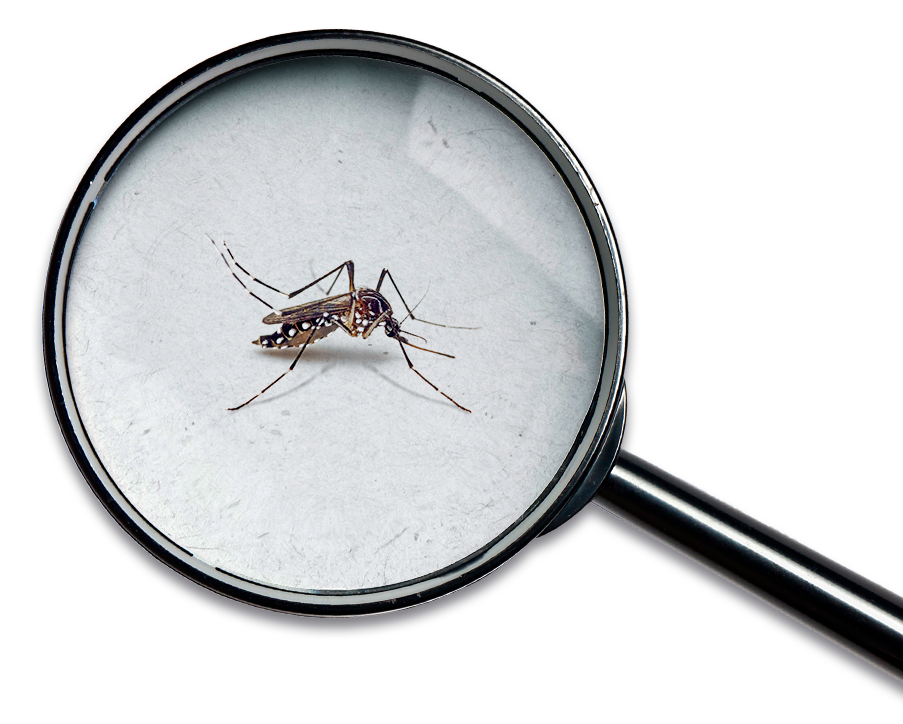
Half a centimeter long, the little black mosquito with white stripes transmits dengue, zika, and chikungunya. The females are the only ones that bite and suck blood, because they need it to produce eggs.
They can bite more than one person for the same batch of eggs, infecting several people on the same day. In addition, a single female produces 60 to 120 eggs in each reproductive cycle, and may have more than three cycles during its lifetime.
It is time to take the necessary measures
Epidemiological bulletin 42 (Volume 52) from the Secretariat of Health Surveillance showed that in Brazil, from January to November 2021, there were 494.992 probable cases of dengue, 91.226 of chikungunya, and 5.710 of zika.
With the summer and the rainy season, cases tend to increase. To tackle the problem, each one of us needs to do our part.
Put an end to Aedes aegypti hotspots
In order to reproduce, the Aedes aegypti mosquito needs stagnant water, but stay alert: any bottle cap can become a real maternity ward for the mosquito. Therefore, follow these tips to eliminate the hotspots:

Close the water reservoir tightly
Fill plant pots and vases with sand up to the rim
Do not throw garbage on empty lots
Clean the gutters and slabs so they do not clog
Clean drains and external gutters
Be careful with plants that can accumulate water, such as bromeliads and aloe
Always leave the bottles with their tops down
Clean and add chlorine to pools and decorative fountains
Clean the pet water bowls with a brush or sponge
Go beyond
• Have you seen that the area is subject to the presence of mosquitoes? Contact your state health department.
• Summon the neighbors to keep the neighborhood safer.
• Share information (always from trusted sites)
What about the pandemic?
Although there has been a drop in the number of cases since the pandemic began, Fiocruz points out the need to maintain preventive measures, since factors such as the suspension of home visits, fear of seeking hospitals, and even the similarities of Covid-19 symptoms with those of dengue, zika, and chikungunya can lead to underreporting.
In order not to get confused, check out the differences now!
If you experience the symptoms presented, do not self-medicate and seek medical help. The initial symptoms are usually mild and non-specific, so it is difficult to know what the disease is before undergoing medical evaluation. It is possible to get infected with dengue and then Covid-19, and vice versa. It is also possible to have both diseases at the same time.
Frequently asked questions
Every year campaigns to combat the reproduction of Aedes are published, and doubts of the most diverse kinds always come up. We have now gathered the main ones and answered them for you!
-
Is dengue contagious?
No. The only way dengue is transmitted is through the bite of the infected mosquito. As such, it is not transmitted from person to person, nor by consumption of food or water. -
What is the life cycle of Aedes aegypti?
The life cycle of Aedes aegypti is divided into four stages: egg, larva, pupa, and adult. When laid in clean, stagnant water, the eggs develop into larvae in two or three days. They then pupate for 48 hours and ultimately become adult mosquitoes. They can live up to 30 days. -
After removing the water, do the eggs die?
No. The eggs are so resistant that they can survive for up to a year in a dry place. As soon as the spot receives water, within half an hour it begins to develop. When you find a spot with eggs, do not dispose of it in drains or other places with water, but on land. -
Does dengue cause diarrhea?
Yes. Vomiting and diarrhea may be observed for 2 to 6 days. -
Why does only the female Aedes aegypti transmit the diseases?
The Aedes aegypti mosquito (both male and female) feed on nectar, sap, and other substances that have sugar in them. However, the female needs blood to mature its eggs. As it bites to suck blood, it spits out saliva, and this is when the virus particles are injected into the bloodstream. -
Do all females transmit dengue virus?
Not every mosquito is infected and infective. It only becomes infected when it sucks the blood of someone who is sick, and 10 to 12 days later it becomes infective. Not all mosquitoes that bite someone with the dengue virus can survive until they become infective and can then start transmitting the disease. -
What are the after-effects of chikungunya?
One of the main after-effects of chikungunya is severe joint pain. Even if the disease is overcome, it can last for years afterwards and cause difficulty in moving limbs and joints. Brain damage can also occur, making motor coordination difficult. -
In case of suspected dengue fever, what can't you eat?
Self-medication is risky in any situation, and when we talk about suspected dengue fever, the case is even more serious. This is because, depending on the medicine taken, the chances of bleeding and hemorrhaging increase. -
What is the Tourniquet Test?
The Tourniquet Test is a rapid test done to get an indication (diagnosis) of arboviruses, such as dengue, zika virus, and chikungunya. It also helps in the evaluation of the patients' health conditions, recommending the best type of treatment to be performed. The test can be performed in any public or private health care facility and can be complemented with rapid tests (NS1), serology for dengue and blood count.
This summer, remember that size does not matter
Don’t underestimate the little mosquito. Share this information and help eliminate the Aedes aegypti hotspots!
Technical Manager
Dr. Sérgio Hércules – CRM (Regional Medical Council) 61.605





